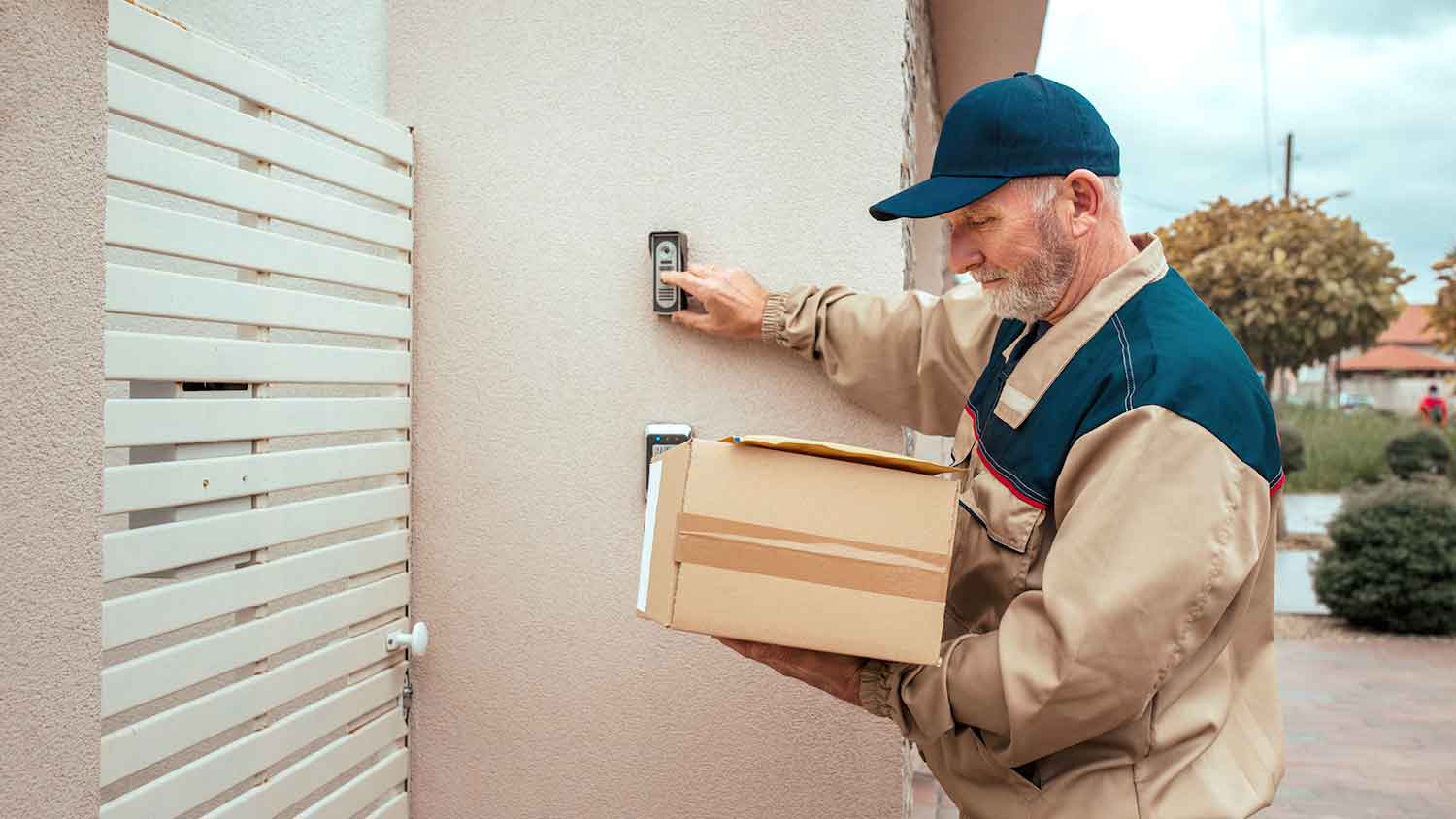Why Is My Fridge Beeping With The Door Closed? 6 Causes and Solutions
Give your fridge the silent treatment
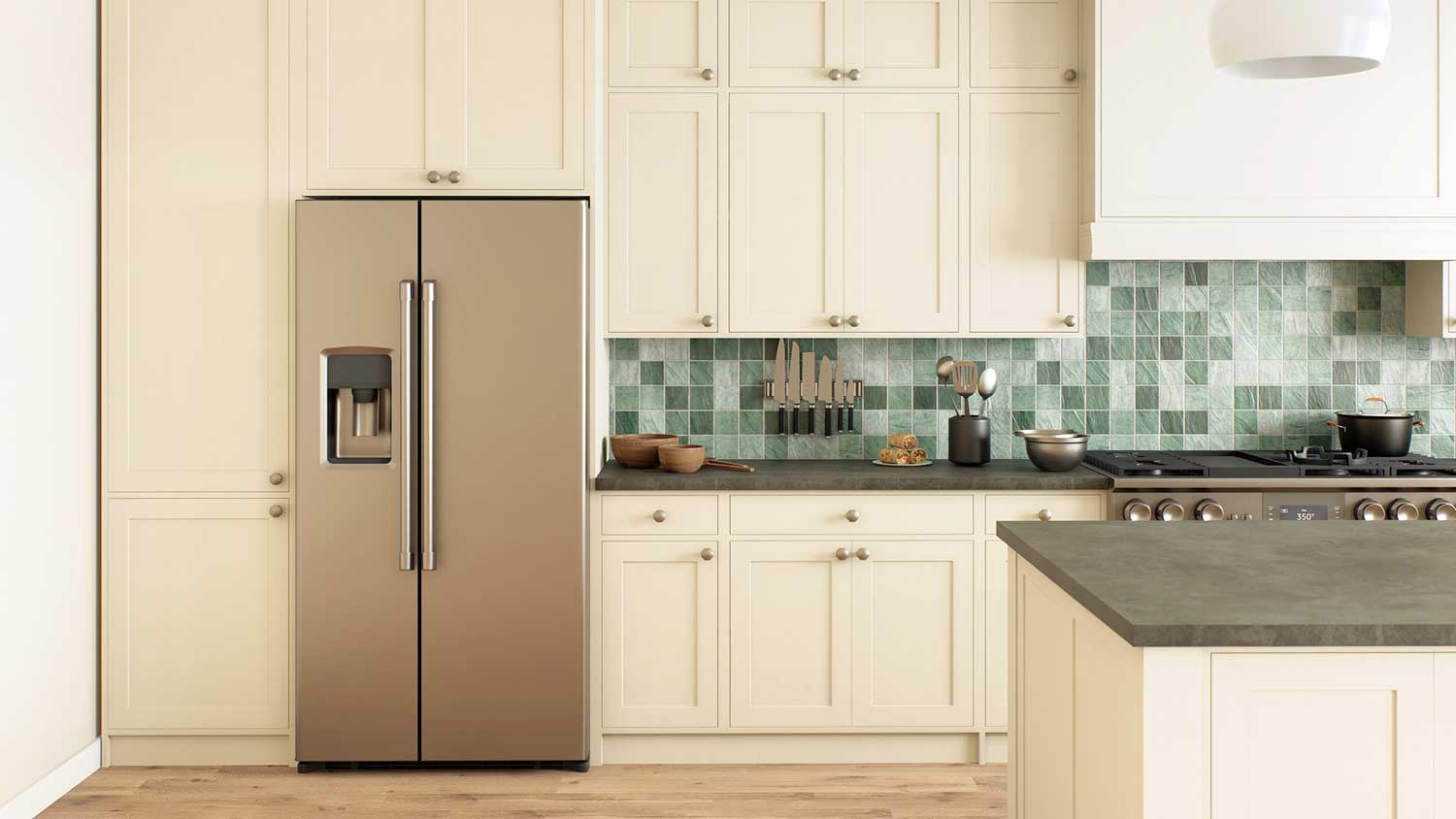

To fix a fridge that beeps with the door closed, start by double-checking that the door is actually closed and that the gasket isn’t missing or damaged.
Most other issues will require help from a professional to diagnose and fix.
Fridge repair costs an average of $650, but compressor-related repairs can climb to about double that.
While your fridge beeping to let you know that you accidentally left the door open is helpful, beeping with the door closed is just annoying—and it can indicate major issues with your appliance. In this guide, we’ll explain why your fridge is beeping with the door closed, how to fix some of the issues yourself, and when to call in a pro.
1. The Door Isn’t Actually Closed
This might seem obvious, but it’s possible that the door isn’t fully closed. It might look closed from a distance, but if something inside is catching on a door shelf, the door could be sitting partially propped open and causing the “door ajar” alarm to go off. If your fridge continues beeping and won’t stop, this could be the cause.
The Solution
Close the doors and check around all sides of the door to confirm that the seal is making contact with the fridge body. If not, move around the contents until you get a good seal.
2. The Gasket Is Damaged or Worn Down
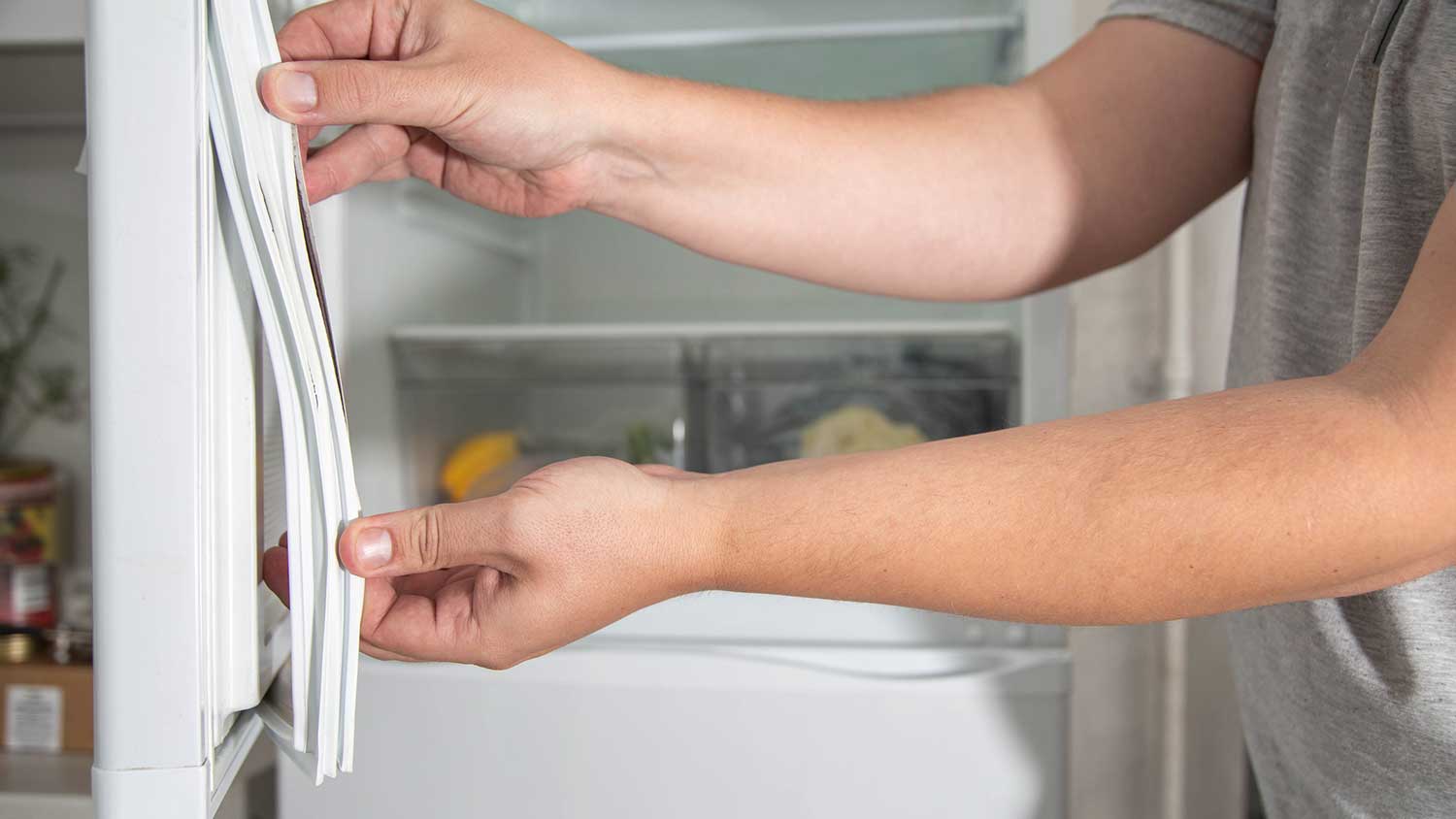
Most modern refrigerators are equipped with an alarm to let you know when the temperature inside is too high, which helps avoid food spoilage. If the gasket around the door is damaged or missing, this could be the culprit for the beeping.
The Solution
Open the fridge doors and inspect the gasket for damage. If it’s broken, cracked, or missing, order a new one from the manufacturer.
3. The Thermostat is Broken
A broken or malfunctioning thermostat in your fridge could trigger the “high temperature” alarm even if the temperature is at an appropriate level. If your fridge beeps continuously and the gasket is in good condition, the thermostat is likely the problem.
The Solution
The fridge thermostat is an electrical component, so it’s best to hire a professional to replace it to avoid damaging your fridge and getting an electrical shock.
4. You Have Too Much Food In Your Fridge
Overloading your fridge leads to high temperatures because the packed contents reduce airflow inside. This can raise the temperature, which triggers an alarm to alert you to food spoilage.
The Solution
Take out some of the food and relocate it to a secondary fridge, if possible. Make sure you have gaps between the contents and the walls of the fridge, and ensure the fan at the back of the fridge isn’t blocked.
5. Your Compressor Isn’t Functioning Properly
Another issue that could leave your refrigerator without the necessary cooling it needs is a malfunctioning compressor. You’ll likely hear humming from your fridge or a series of clicks before the compressor turns on if this is your issue.
The Solution
Repairing and replacing your refrigerator’s compressor is an involved task. Your best bet is to hire an appliance repair tech to confirm this is your issue and carry out the repair. This is an expensive repair, so a full fridge replacement may be a better option.
6. Your Evaporator Coils Are Dirty
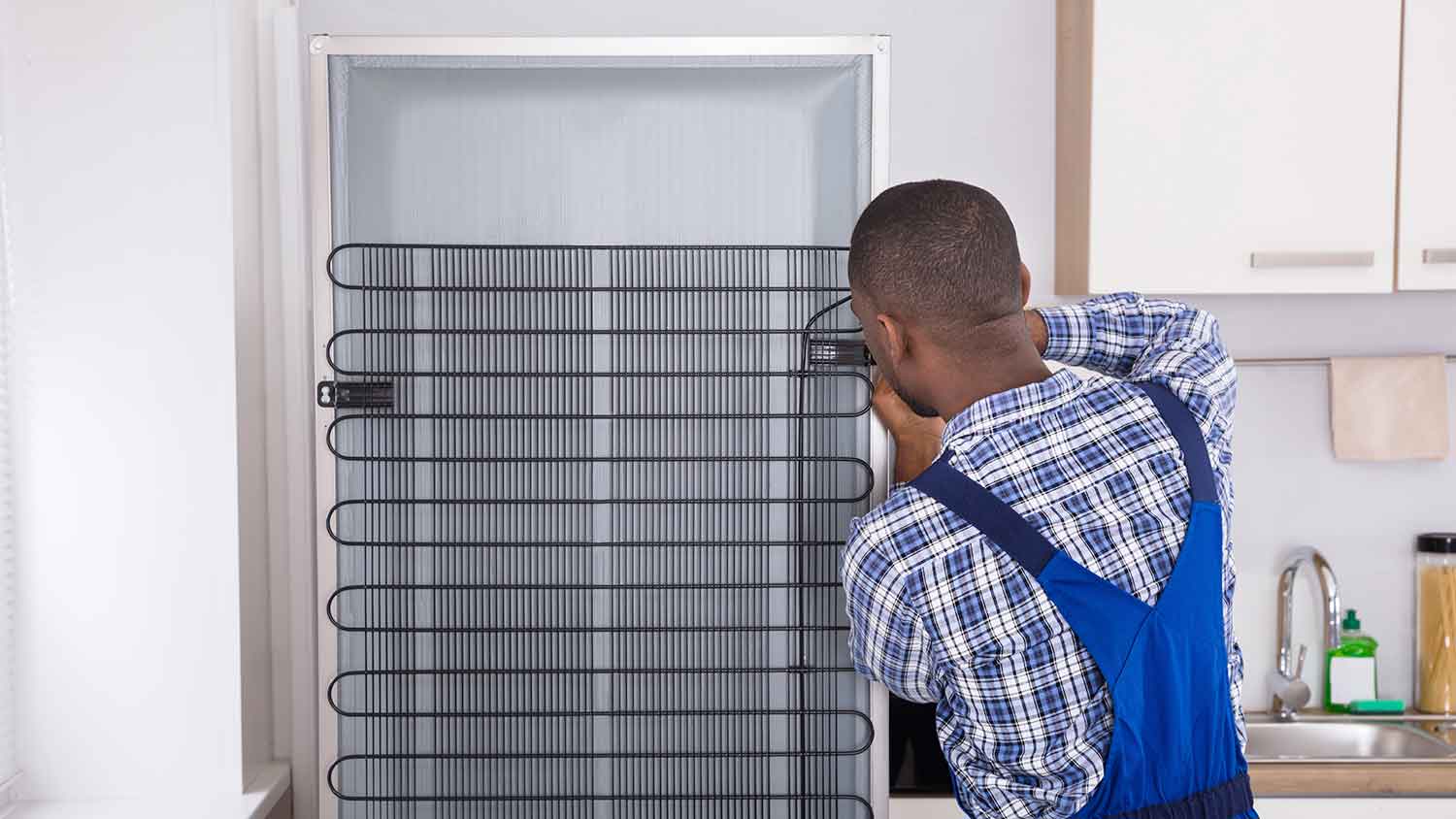
The evaporator coils behind your fridge can easily get coated in dust and dirt, which will reduce efficiency. If the issue is severe enough, your fridge won’t get cold enough, and you’ll hear that “high temperature” alarm.
The Solution
Pull your fridge away from the wall, unplug it, and dust the evaporator coils. Scrub them with an old toothbrush for a deeper cleaning, if necessary.
When to Call a Pro
Luckily, many of the issues that could lead to your refrigerator beeping even with the door closed require simple, low-cost DIY fixes. Start by checking that the door is closed and then inspect the door gasket for damage. Next, clean the evaporator coils and ensure the fridge isn’t overfilled.
If those solutions don’t fix the problem, call a local fridge repair specialist for help. They can assess which internal components could be causing the problem and repair or replace them for you.
Frequently Asked Questions
You can disable a fridge door alarm on most modern models by pressing and holding the door alarm button for three seconds. The door alarm button is located on the control panel, which is usually on the face of the door if you have a digital display or just inside one of the doors on the body of the fridge. But keep in mind that the door alarm is a helpful feature that can identify refrigerator problems and reduce your running costs, so it’s best to leave it on.
If your fridge compressor is failing, you’ll hear a loud humming or clunking noises when the compressor turns on, which usually happens 4 or 5 times a day (or more if you open it frequently). You may also hear clicking noises before the compressor turns on, which is the start relay detecting an issue with the compressor as it’s calling for cooling.



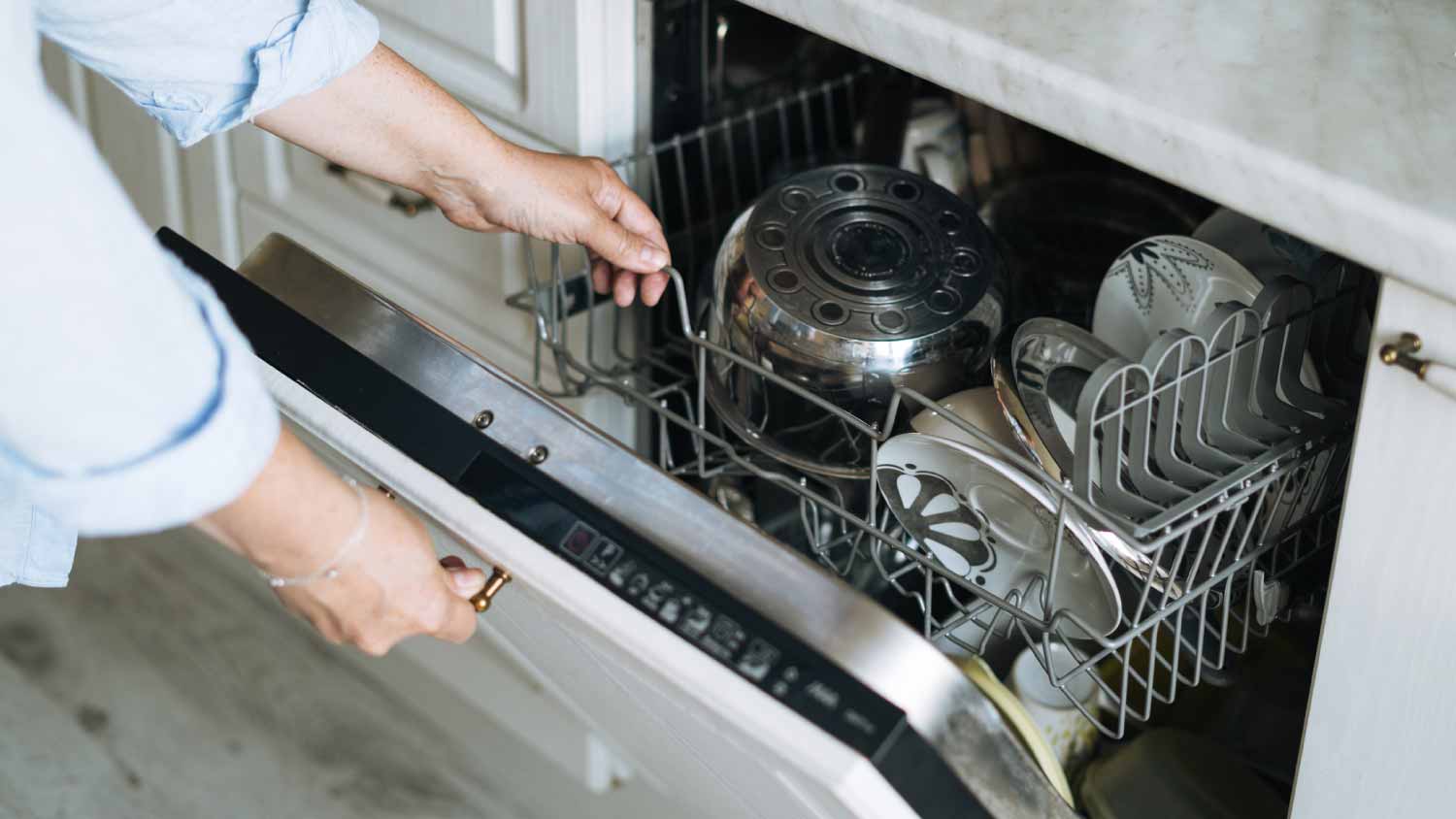
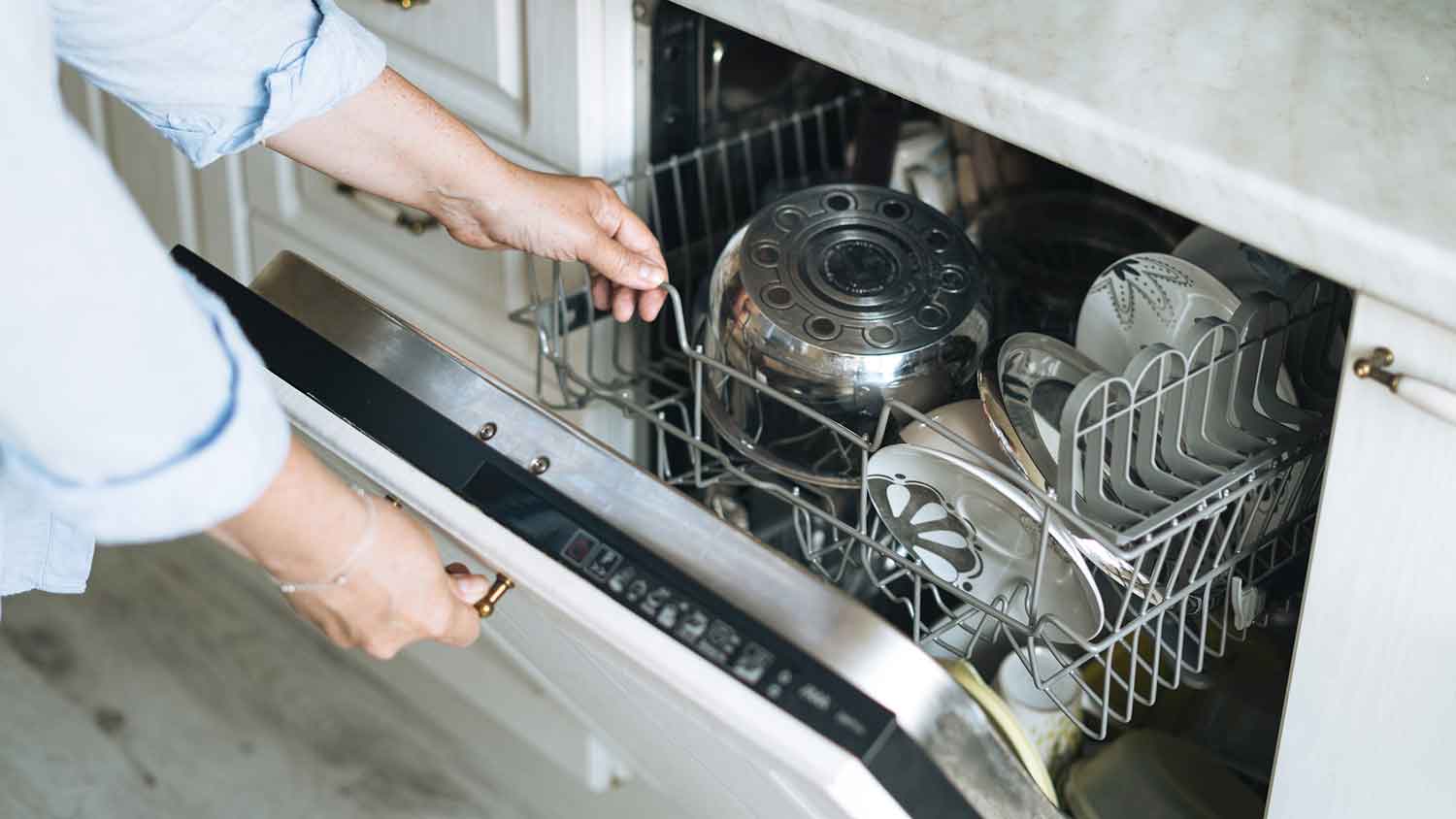
- Appliance Repair Companies
- Washing Machine Repair
- Dryer Repair
- Refrigerator Repair
- Dishwasher Repair
- Oven Repair
- Wood & Pellet Stove Repair
- Freezer Repair Services
- Wood Stove Services
- Gas Stove Repair
- Emergency Appliance Repair Companies
- Ice Maker Repair
- Gas Appliance Repair
- GE Appliance Repair
- GE Refrigerator Repair
- GE Dryer Repair
- GE Dishwasher Repair
- GE Washing Machine Repair
- Samsung Appliance Repair
- Samsung Refrigerator Repair
- Samsung Dryer Repair
- Samsung Washer Repair
- Samsung Dishwasher Repair
- Samsung Oven Repair
- Whirlpool Repair
- Whirlpool Refrigerator Repair
- Whirlpool Washer Repair
- Whirlpool Dryer Repair
- Whirlpool Oven Repair
- Maytag Appliance Repair
- Maytag Refrigerator Repair
- Maytag Washer Repair
- Maytag Dryer Repair
- Maytag Dishwasher Repair
- Kitchenaid Appliance Repair
- Kitchenaid Oven Repair
- Kitchenaid Refrigerator Repair
- Kenmore Appliance Repair
- Kenmore Dishwasher Repair
- Kenmore Washer Repair
- Kenmore Dryer Repair
- LG Refrigerator Repair
- Bosch Appliance Repair
- Kenmore Refrigerator Repair
- LG Appliance Repair Services
- GE Microwave Repair
- Electrolux Appliance Repair
- Electrolux Washer Repair
- Kitchenaid Dishwasher Repair Services
- Wood Stove Inspection
- Dishwasher Installation
- Trash Compactor Repair



